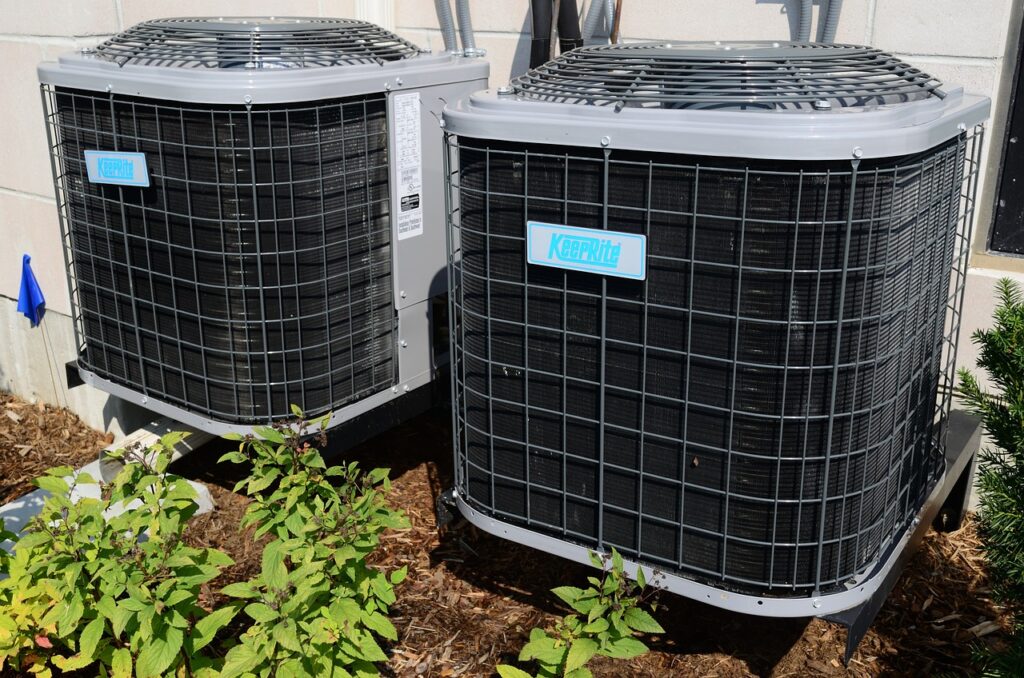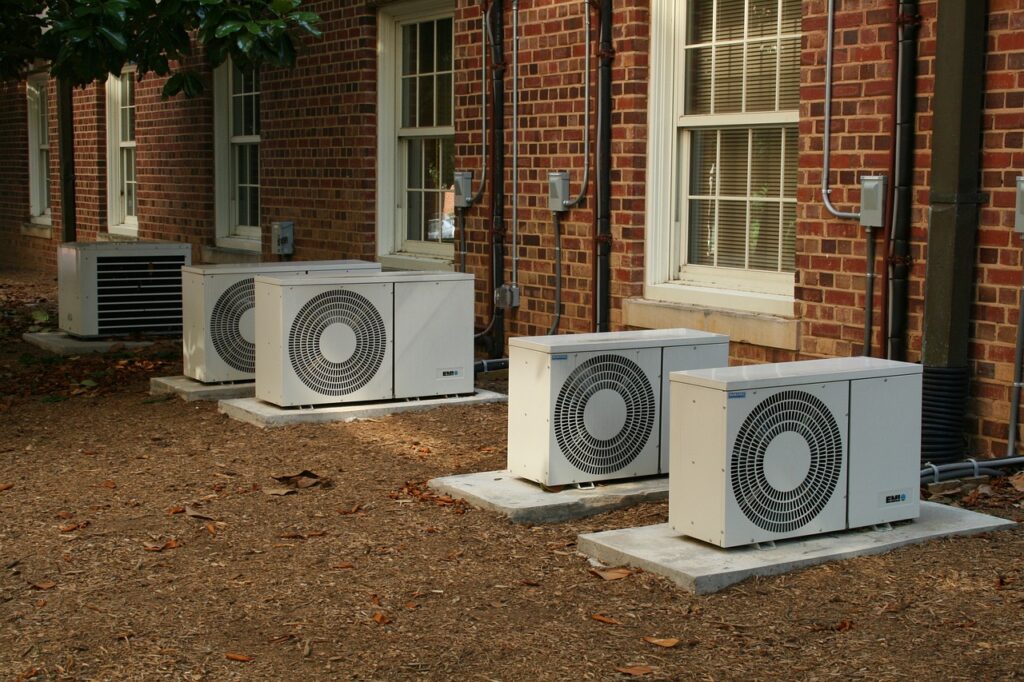The HVAC (Heating, Ventilation, and Air Conditioning) industry plays a crucial role in maintaining comfortable indoor environments in residential, commercial, and industrial settings. HVAC technicians are the backbone of this industry, ensuring proper installation, maintenance, and repair of heating, cooling, and ventilation systems. The demand for skilled HVAC technicians is on the rise, with numerous opportunities for career advancement and growth.
The HVAC field offers not only job stability but also rewarding experiences and the chance to make a meaningful impact on people’s lives. By ensuring optimal indoor air quality, HVAC technicians contribute to healthier and more comfortable living and working spaces. If you’re considering a career in this field, now is a great time to explore the steps to becoming an HVAC technician and unlock new opportunities for professional success.
Educational Requirements
Embarking on a career as an HVAC technician begins with a solid educational foundation. A high school diploma or GED is the minimum requirement to enter the field. However, additional education and HVAC certifications can greatly improve your employability and career prospects.
Post-Secondary Education
While not always mandatory, pursuing post-secondary education in HVAC technology can provide you with valuable theoretical knowledge and hands-on experience. Technical or trade schools and community colleges offer diploma, certificate, and associate degree programs in HVAC technology that typically last from 6 months to 2 years. These programs cover essential topics, such as refrigeration, electrical systems, and heating and cooling technology, preparing you for a successful career in this trade field.
Certifications and Licenses
Obtaining certifications and licenses is crucial for HVAC technicians to demonstrate their skills, knowledge, and commitment to safety. The Environmental Protection Agency (EPA) requires technicians working with refrigerants to hold an EPA 608 certification, which ensures that they understand the regulations and proper handling techniques for these substances.
Beyond the EPA certification, state and local licenses may also be required, depending on your location. These licenses vary by state but typically involve passing an exam and fulfilling specific requirements, such as background checks and minimum work experience. Make sure to research the licensing requirements in your area to ensure compliance and improve your job prospects.

Training and Apprenticeship Programs
Hands-on experience is a critical component of becoming an HVAC technician. Training programs provide practical skills and knowledge that complement your educational background. There are two primary types of training programs: formal apprenticeships and on-the-job training.
Types of Training Programs
Formal apprenticeships are structured programs that combine classroom instruction with paid on-the-job training. These programs typically last 3 to 5 years and are sponsored by trade unions, contractor associations, or individual employers. Apprentices work under the supervision of experienced technicians, learning essential skills in a real-world environment.
On-the-job training is a more informal approach to gaining experience. New technicians might start as helpers, working alongside seasoned professionals, and gradually take on more responsibilities as their skills improve. While on-the-job training can be less structured than formal apprenticeships, it still provides valuable hands-on experience and mentorship.
Benefits of Apprenticeships
Apprenticeships offer numerous advantages for aspiring HVAC technicians. First and foremost, they provide paid training, allowing you to earn a wage while learning the trade. Additionally, apprenticeships offer the opportunity to learn from experienced professionals, gaining valuable insights and practical knowledge that can’t be found in textbooks.
How to Find and Apply for Apprenticeship Programs
Searching for apprenticeship programs can be as simple as contacting local unions or industry associations. Many organizations have partnerships with employers and offer apprenticeship opportunities for aspiring technicians. Another option is to check with local technical schools or community colleges, as they may have connections with employers offering training programs. When applying, be prepared to submit a resume, pass a basic skills test, and attend an interview.

Skills and Qualities of Successful HVAC Technicians
To excel as an HVAC technician, it’s essential to possess a combination of technical skills, soft skills, and physical abilities. These skills and qualities will not only help you perform your job efficiently but also set you apart from the competition.
Technical Skills
Knowledge of HVAC systems and equipment is a must for any technician. Familiarity with various types of heating, cooling, and ventilation systems will enable you to install, maintain, and troubleshoot issues effectively. The ability to diagnose and repair problems is critical, as it ensures the proper functioning of HVAC systems and the satisfaction of clients.
Soft Skills
While technical expertise is vital, soft skills play an equally important role in a successful HVAC career. Communication and customer service skills are crucial, as technicians frequently interact with clients, explaining complex technical concepts in simple terms. Problem-solving and critical thinking abilities are also key, as they enable technicians to analyze issues and find efficient solutions.
Physical Requirements
Working as an HVAC technician can be physically demanding. Stamina and strength are essential for tasks such as lifting heavy equipment, climbing ladders, and working in confined spaces. Manual dexterity is also crucial, as technicians often manipulate small components and use hand tools. Developing these physical abilities will not only make your job easier but also reduce the risk of injury on the job.

Career Advancement Opportunities
As an HVAC technician, there are numerous opportunities for career advancement and growth. By pursuing continuing education, certifications, and networking, you can unlock new job roles and expand your professional horizons.
Continuing Education and Certifications
Obtaining additional certifications can significantly enhance your career prospects. The North American Technician Excellence (NATE) certification is a highly respected credential in the HVAC industry, showcasing your knowledge and skills in various HVAC specialties. Additionally, there are specialized certifications for areas such as green technologies, indoor air quality, and building automation systems. Pursuing these certifications demonstrates your commitment to staying current with industry trends and technologies.
Potential Job Roles
With experience and advanced certifications, HVAC technicians can progress to higher-level roles. Positions such as HVAC supervisor, consultant, or even business owner are attainable with the right combination of skills and experience. These roles often come with increased responsibility, greater decision-making authority, and higher earning potential.
Networking and Professional Development
Building a professional network is essential for career growth in the HVAC industry. Attending industry associations, conferences, and trade shows can help you make valuable connections and stay up-to-date with the latest developments in the field. Online forums and social media groups also offer opportunities to engage with fellow HVAC professionals, exchange ideas, and seek advice. By actively participating in networking and professional development activities, you can broaden your knowledge and enhance your career prospects.
Conclusion
Becoming an HVAC technician involves a combination of education, hands-on training, and certifications. With a solid foundation in these areas, you’ll be well-equipped to pursue a rewarding and in-demand career in the HVAC industry. The importance of education and training cannot be overstated, as it provides you with the necessary skills, knowledge, and credentials to excel in your field.
At Pathways2Advancement, we strive to provide unbiased advice and support to help you navigate your education and career decisions. By pursuing a career as an HVAC technician, you can unlock new opportunities for professional growth and make a meaningful impact on the lives of others. We encourage you to take the first step towards a successful and fulfilling career in the HVAC industry today.
Resources for HVAC Technicians
Air Conditioner Contractors of America: https://www.acca.org/certification/qtech/hvac-training-hvac-electricity-basics
A/C, Heating, and Refrigeration News: https://www.achrnews.com/
